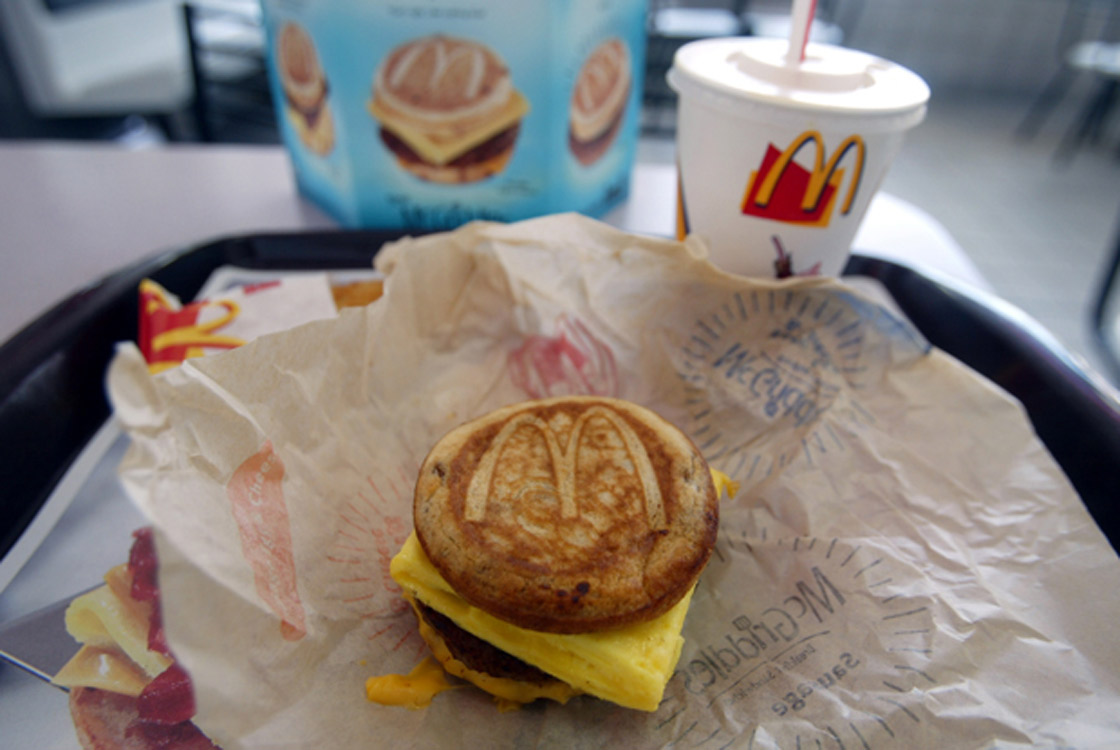TORONTO – If you’re in the middle of digging into a breakfast sandwich picked up from a fast-food joint, you should probably stop reading this story.

In two new studies, Canadian researchers are reminding consumers of how unhealthy these morning bread, bacon, egg and cheese combinations are, especially on your arteries.
Just one day of eating this breakfast and “your blood vessels become unhappy,” according to research that suggests the effects of these fat-laden, liberally salted meals are immediate, triggering blood flow to slow down.
University of Calgary scientists say the breakfast sandwich hurts even young consumers. In their study, healthy, non-smoking students were fed two commercially available sandwiches.
The meal clocked in at 900 calories and 50 grams of fat.
Blood flow decreases after eating breakfast sandwiches: results
Two hours after eating breakfast sandwiches on one day and skipping breakfast on another day, the subjects’ VTI – or velocity time integral – was studied.
VTI levels, simply put, indicate the velocity of blood flow into a person’s arm, explains lead researcher Dr. Todd Anderson, head of the university’s cardiac science and director of the Libin Cardiovascular Institute of Alberta.

Get weekly health news
The higher the levels, the better, because it indicates that small vessels are dilating to capacity and blood vessel hormones are working well.
Results showed that after just two hours, subjects who had eaten the breakfast sandwiches had decreased VTI levels by 15 to 20 per cent.
- Head-Smashed-In Buffalo Jump heritage site enjoys boost after shout out on ‘The Pitt’
- What is Nipah virus? What to know about the disease as India faces outbreak
- Pizza Pops contaminated with E. coli tied to 7 hospitalizations, data shows
- Pizza Pops E. coli recall grows as roughly a dozen products now hit
“From just one isolated meal, the results are temporary. But the study shows that such a high-fat offering can do more harm, and do it more quickly than people might think,” the researchers warn.
Health officials have tried to warn consumers in recent years, as obesity rates steadily climb, that fats can build up in your arteries and that this damage isn’t easy to reverse.
Do you think fast food breakfast sandwiches are unhealthy?Bad fat vs. good fat flowing through the arteries
The University of Montreal, for its part, shed light on the day-and-night difference between bad fats dredged in a single junk food meal compared to healthy fats found in a Mediterranean-style dinner made with fatty fish oil, olive oil and nuts.
These researchers at the university-affiliated EPIC Centre of the Montreal Heart Institute suggest that the inner lining of arteries take a hit each time breakfast sandwiches are eaten.
In this case, 28 non-smoking men ate a meal of salmon, almonds and vegetables cooked in olive oil – 51 per cent of this dinner’s calories came from healthy fats, such as monounsaturated fatty acids and polyunsaturated fats.
The second meal, a week later, was made up of a sandwich filled with sausage, an egg, cheese and three hash browns. Fifty-eight per cent of the calories came from saturated fatty acids and no omega-3s.
The subjects had to undergo ultrasounds after two and four hours so researchers could take a look at their arteries post-mealtime.
Lead researcher Dr. Anil Nigam says his team found that after eating the junk food breakfast, participants’ arteries dilated 24 per cent less than they did while in a fasting state.
The heart-healthy meal, however, led to normal dilation and a healthy blood flow.
“These results will positively alter how we eat on a daily basis . . . It is now something to think about at every meal,” Nigam said in a statement.








Comments